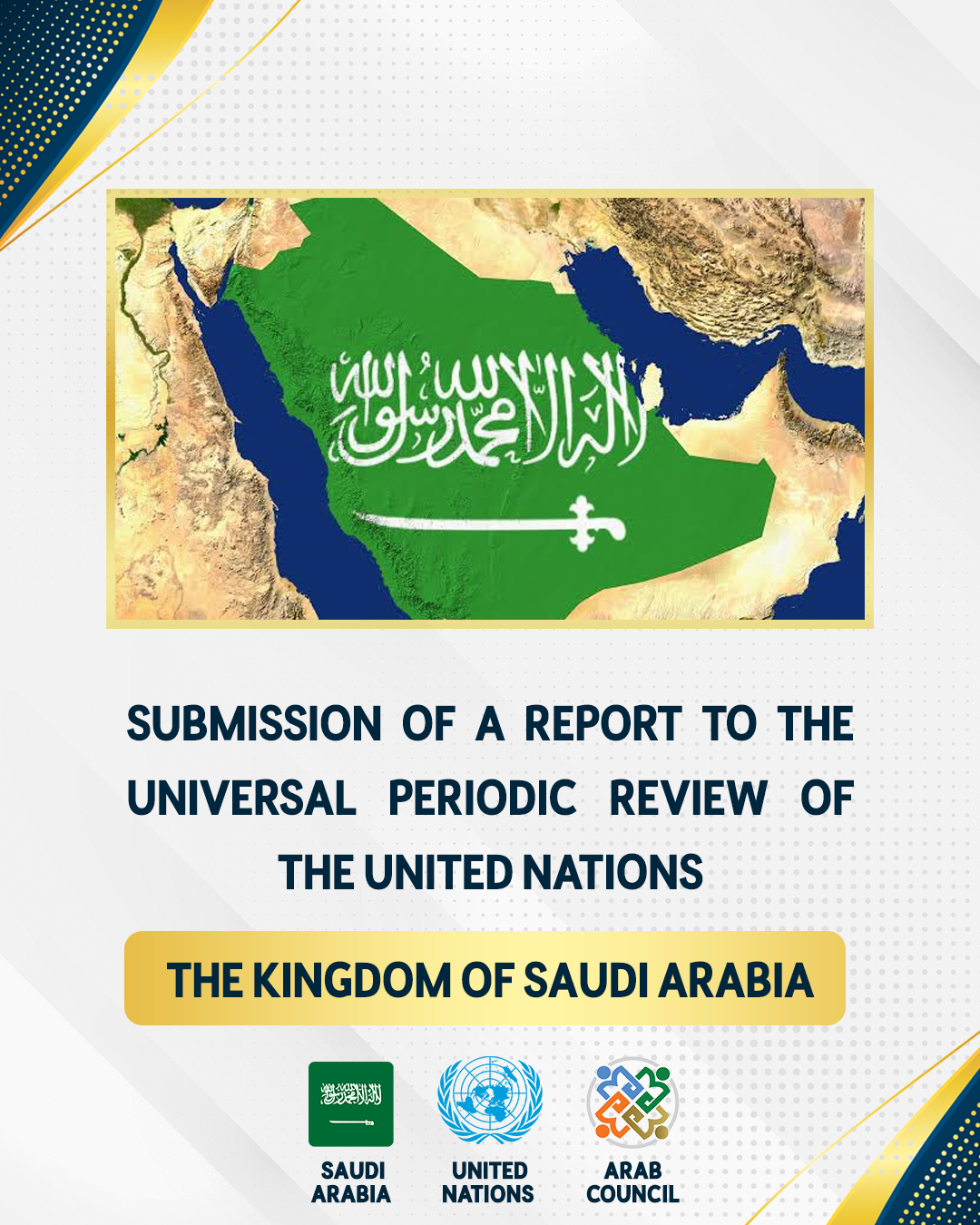Fifty-fifth Session of the Working Group on the Universal Periodic Review (January – February 2024)
This contribution reviews, for the fourth time, the human rights violations committed by Saudi Arabia under the leadership of Mohammed bin Salman, both within Saudi Arabia and in Yemen, as a leader of the coalition forces engaged in the Yemen conflict. It is submitted by the “Arab Council,” an international institution established on February 28, 2022, under Swiss law. This initiative emerged to ally with democratic forces committed to upholding the values of the Arab Spring and countering the coalition of autocratic and corrupt parties that have undermined peaceful democratic revolutions in recent years. The Council aims to defend the values of the Arab revolutions, advocate for people’s right to free choices, promote democratic culture, support human rights and freedoms, and address just causes in the Arab region while sharing experiences and expertise in transitional governance.
Saudi Arabia did not accept the recommendations addressed to it during its third Universal Periodic Review in 2018 to accede to the International Convention for the Protection of All Persons from Enforced Disappearance, the International Convention on the Rights of All Migrant Workers and Members of Their Families, the Second Optional Protocol to the International Covenant on Civil and Political Rights aiming at the abolition of the death penalty, the Optional Protocol to the Convention against Torture, and the International Covenant on Economic, Social and Cultural Rights. Saudi Arabia also needed to implement the accepted recommendation to establish a national institution to promote and protect human rights within the country. Saudi Arabia still needs to implement the proposal to cooperate with international human rights mechanisms, extend invitations to unique mandate holders, and accept visits, and 13 visit requests remain pending, some since 2004 and 2005.
The Saudi government commits appalling human rights violations, including the arbitrary detention of peaceful dissenters, thinkers, activists, and human rights defenders, suppressing civil society, torture, and mass executions of prisoners following unfair trials. In November 2020, prominent human rights defenders, activists, and thinkers issued the “Popular Vision for Reform in the Kingdom of Saudi Arabia,” outlining 13 principles to ensure respect for human rights. These principles include releasing political prisoners, respecting the right to freedom of expression and association, protecting women’s rights, ending religious discrimination, and more.
Since March 2015, the Kingdom of Saudi Arabia has led a military campaign against Houthi forces in Yemen, utilizing airstrikes that have resulted in the deaths of thousands of civilians due to the targeting of homes, markets, and hospitals. This violates the principles of distinction and proportionality outlined in international humanitarian law and could amount to war crimes.
The organization “Citizenship for Human Rights” documented, from September 2014 to August 2022, no less than 1,044 airstrikes targeting civilians and civilian objects, resulting in the deaths of 3,618 civilians, including 459 women and 1,207 children, as well as injuring 3,973 other civilians, including 464 women and 1,013 children. During the same period, “Citizenship” documented 805 ground attacks resulting in the deaths of 751 civilians, including 122 women and 310 children, and injuring 1,885 other civilians, including 288 women and 785 children.
In the context of the indiscriminate airstrikes carried out by the Arab Coalition, led by Saudi Arabia, as part of the war in Yemen, on October 8, 2016, Saudi forces targeted a funeral ceremony at the “Great Hall” in the capital, Sana’a, resulting in the deaths of 100 people and injuring over 500, including children. Despite the presence of military personnel and officials involved in the war, hundreds of civilians were also present, indicating that the attack was disproportionate.
Highlights from the Review:
Violations within the Kingdom of Saudi Arabia
A. The individual’s right to life, liberty, and security of person
B. Discrimination against women
Violations committed by the Kingdom of Saudi Arabia in Yemen
A. Arbitrary detention and enforced disappearance
B. Saudi recruitment of Yemeni civilian fighters to defend its southern borders
Recommendations


